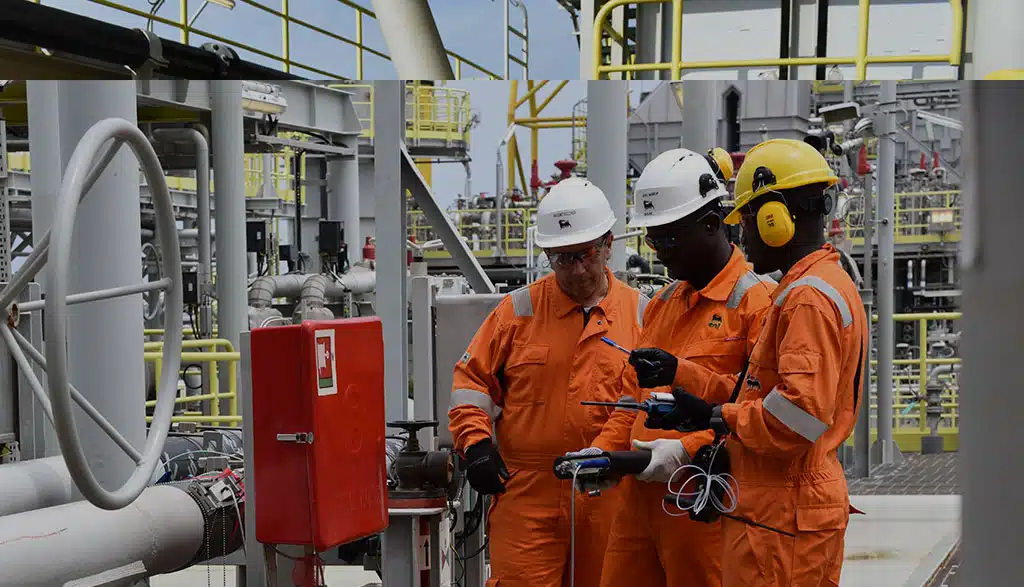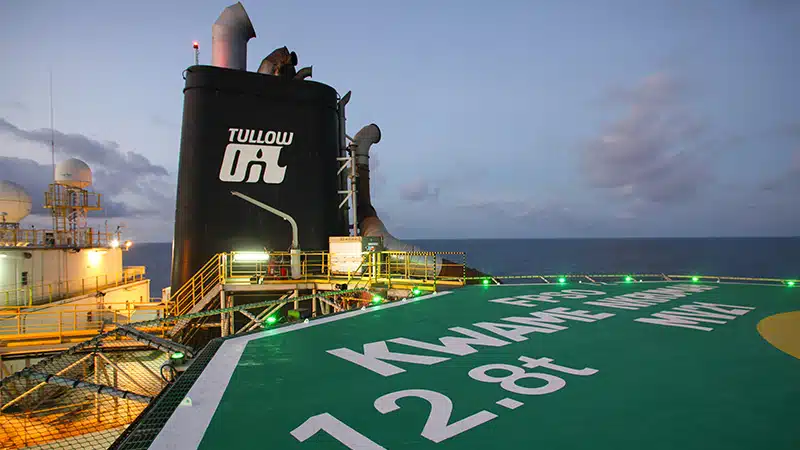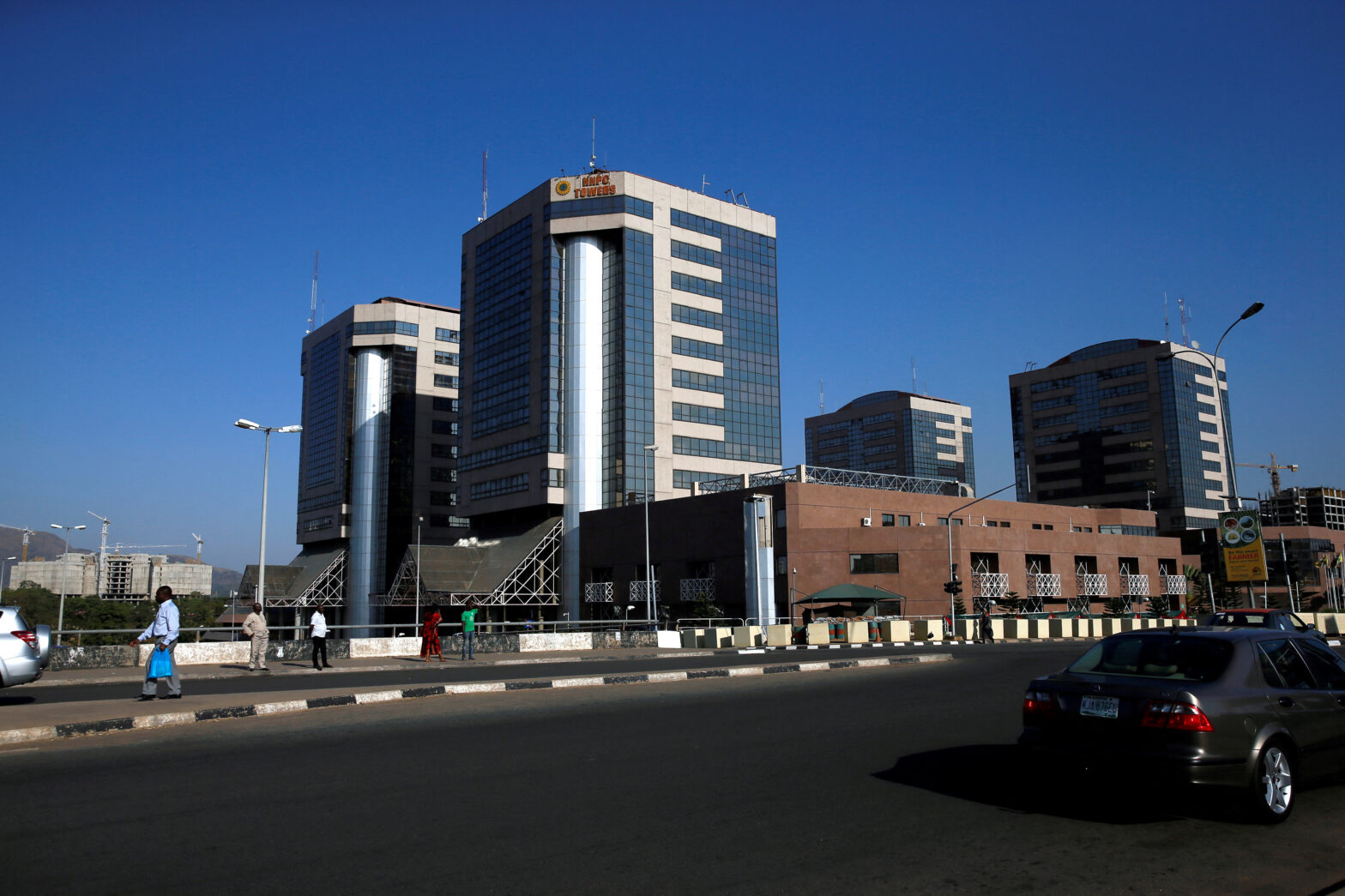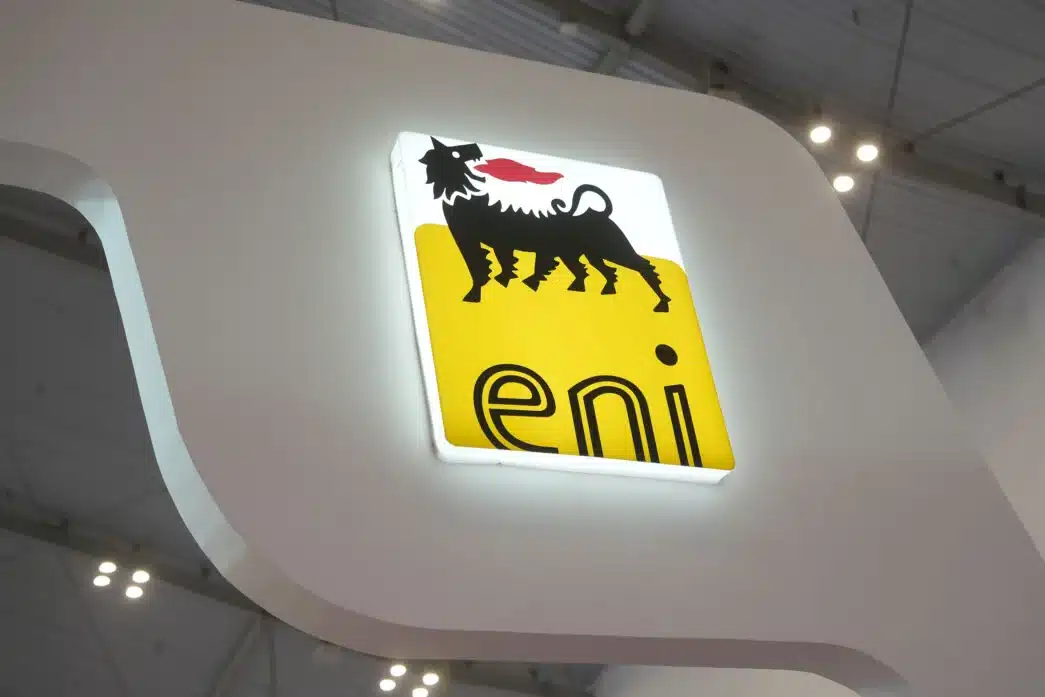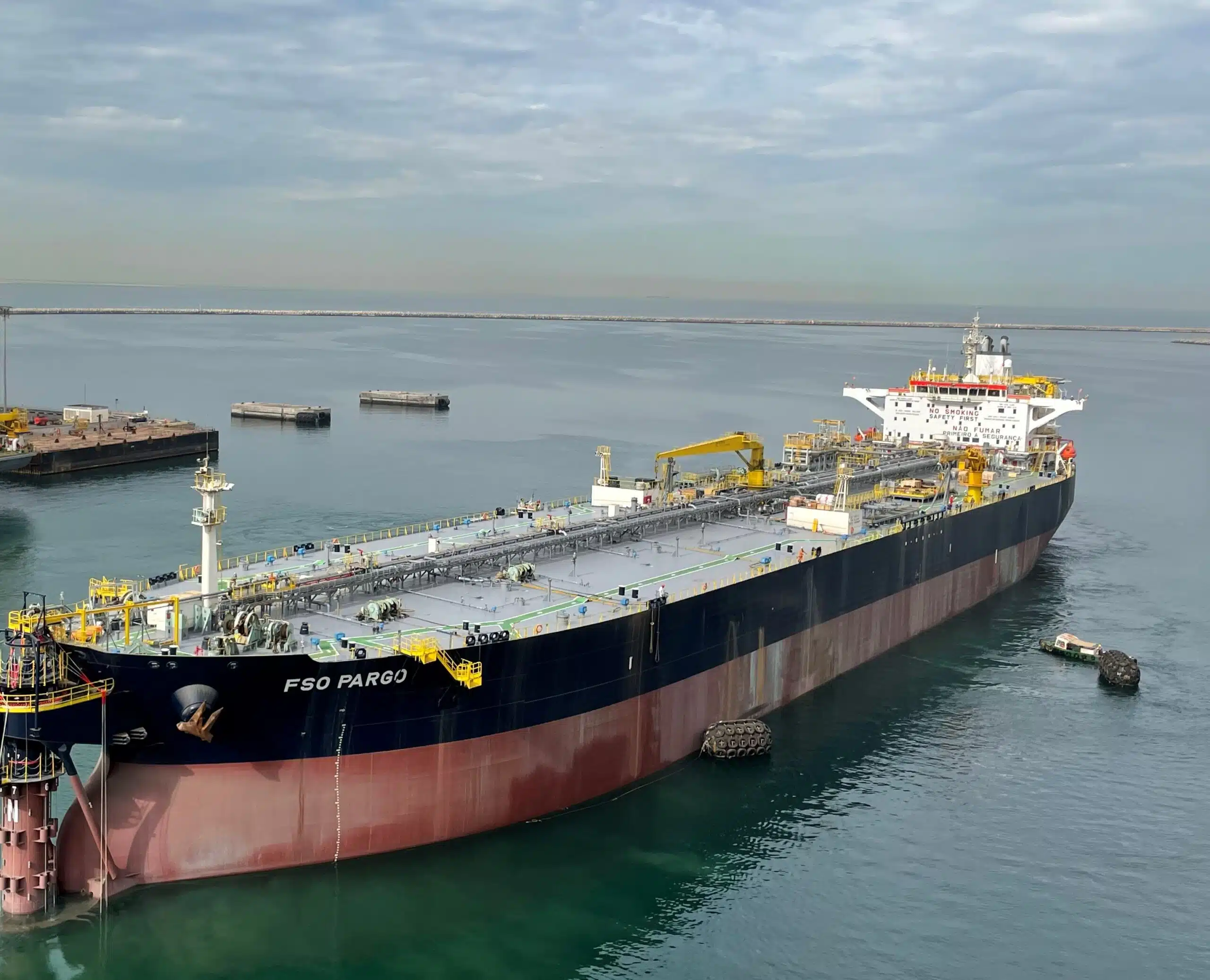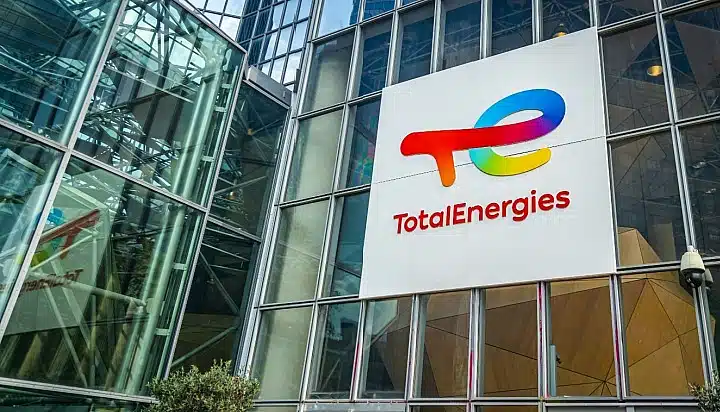Ghana made global headlines in 2007 when a massive sweet crude discovery was made at the offshore Jubilee field.
The project was fast-tracked, and by 2010, Ghana had achieved first oil, officially joining the ranks of oil-producing nations.
A few years later, another significant offshore discovery followed; the Tweneboa–Enyenra–Ntomme (TEN) field.
As Ghana’s second-largest offshore development, TEN came onstream in 2016, further diversifying the economy beyond its traditional gold and cocoa exports.
Currently, Jubilee and TEN together account for more than 85% of the country’s daily oil production.
Their output has generated billions in export earnings, tax revenues, and royalties that have funded national budgets, infrastructure projects, and social programs.
In peak years, petroleum revenues from these two fields have contributed over 8–10% of Ghana’s GDP.
But the story is changing. Once hailed as economic game-changers, Jubilee and TEN are now showing signs of fatigue.
Since 2019, Ghana’s oil production has been declining at an average annual rate of 7.4%.
Rising operational challenges threaten the sustainability of these flagship projects, putting Ghana’s lofty oil ambitions to the test.
Early production days
Ghana would probably not be the big oil producing country it is today had it not been for the commercial discovery at Jubilee.
In June 2007, Kosmos Energy-led consortium comprising Ghana’s National Petroleum Corporation (GNPC) and other partners, discovered the Jubilee field.
The inaugural well (Mahogany-1) revealed up to 1 billion barrels of light, sweet crude in place.
The find was one of West Africa’s largest oil discoveries in over a decade.
About four years later, the country moved swiftly to develop the asset and began production.
The Kwame Nkrumah FPSO was quickly deployed within a time frame atypical of offshore timelines.
If anything, the moment for Ghana’s long-held ambition to diversify its commodity exports beyond gold and cocoa had arrived.
Jubilee began producing in December 2010 at 55,000 barrels per day (bpd); as of 2024, the output had grown to 83,409 bpd.
Jubilee accounts for no less than 70% of Ghana’s daily oil production.
The field is currently operated by Tullow Oil (38.98%), alongside other partners like Kosmos Energy (38.61%), GNPC (19.69%) and PetroSA (2.72%).
Similarly, the TEN field is operated by Tullow Oil (54.84%), with others like Kosmos Energy (20.38%), GNPC (20.95%) and PetroSA (3.82%).
It began production in 2016 and by 2024 output averaged 18,401 bpd, currently accounting for about 10% of Ghana’s daily output.
Production from the field peaked in 2018 and is expected to reach its economic limit by 2033.
How the fields are now performing
Oil production in Ghana has been declining despite the country still holding over 2 billion boe in proven reserves.
In 2024, the country produced between 160,000 to 170,000 barrels of oil per day (bpd) from the three fields including Jubilee, TEN and Sankofa.
Outputs and exports from these mature fields have been decreasing in recent years.
Oil production has declined sharply from 7144 million barrels in 2019 to 48.25 million barrels in 2024, according to the Public Interest and Accountability Committee (PIAC).
This led to a significant 30% fall in the country’s oil revenues last year.
Ghana’s oil output is witnessing a decline primarily due to the low investments in new wells.
The country’s major oil operator Tullow was immersed in a series of long standing tax disputes with the Ghanaian government.
The multimillion dollar tax cases hampered Tullow’s investments in both new developments and mature fields.
Why output is declining
Activities at Ghana’s two major oil fields have lost steam largely because of underinvestment caused by a number of factors.
President Mahama for instance criticised the previous administration for regulatory challenges, which he claims deterred significant investors such as Tullow Oil and ENI.
Ghana remains engulfed in a huge $2.5 billion energy debt, but the President is hopeful that the country’s oil fields can offer economic relief.
In recent years, Ghana’s tax authorities have issued back-tax demands to oil operators like Tullow Oil and Kosmos Energy, as the government sought additional revenue amidst rising debt levels and fiscal pressures.
The yearslong tax dispute involving the country’s major operator Tullow can also be said to be a factor in why the oil sector has seen a major setback.
The court cases have not only raised questions about Ghana’s fiscal framework for oil and gas operations; but also explains why oil output is seeing a decline.
Another reason that The global energy transition is also argued by some to contribute to reduced appetite for new exploration in Ghana.
The government recently approved a $3.4 billion renewable energy program to transform the nation’s energy infrastructure, prioritizing public institutions like schools, hospitals, and universities.
The program targets a wide range of clean energy solutions like off-grid and distributed renewable systems (BESS), and electric vehicles.
Prior to this, Ghana also secured $1 billion in climate financing from international partners to advance its renewable energy and green transition agenda.
Ghana’s energy and green transition Ministry of Energy and Green Transition said the plan is in line with Ghana’s broader commitment to achieve universal energy access by 2030.
Implications for Ghana’s oil ambitions
Declining outputs in Ghana’s major oil fields have significant implications for the country’s oil ambitions.
Ghana’s oil revenue expectations for 2025–2030 are looking quite challenging due to several factors stemming from recent production declines.
The reduction in oil production directly affects government revenue.
Ghana’s oil revenues plunged by 56% during the first half of 2025 due to a sharp decline in production and falling global prices.
According to data from the Bank of Ghana, oil revenues dropped to $370.6 million between January and June, down from $840.8 million during the same period last year.
However, in a positive development that could help replace declining fields, Eni recently announced the confirmation of commercial oil and gas discoveries at Eban-Akoma finds within the Offshore Cape Three Points Block 4.
This is Ghana’s first major offshore discovery by any Big Oil company in several years, injecting fresh optimism into the upstream sector.
Energy and Green Transition Minister, John Jinapor, said the discovery is a major boost to the country’s oil and gas sector, with immense potential to fuel economic transformation and enhance energy security.
In 2024, an indigenous operator Springfield also confirmed a significant hydrocarbon discovery in the same region, even though development is still underway.
How the decline is being addressed
The Ghanaian government has urged oil companies operating in the country to speed up exploration and production activities.
President John Mahama says Ghana’s oil must be explored and developed now before energy transition renders it obsolete.
Key reforms have also been proposed to reverse declining oil production and leverage emerging opportunities across the petroleum value chain.
Just weeks after taking office, Mahama introduced a comprehensive energy program to address systemic inefficiencies in the sector.
The $60 billion plan will be executed in three phases within the next 10 years and includes the construction of a new 300,000 bpd refinery, a 90,000 bpd petrochemical plant and 3 million cubic meters storage facility.
And by July, a new board for the Ghana National Petroleum Corporation (GNPC) was appointed to attract investors to the country’s oil and gas sector.
These measures have motivated debt-stricken Tullow to divest from non-core operations in several upstream markets in Africa.
Although the company expects these farm-outs to cause an interim loss of $80 million in its full year production.
Nevertheless, Tullow believes the divestment will help strengthen capital structure and improve operational efficiency in Ghana.
Similarly, the company has reached a new deal with the Ghanaian government that will allow it and other partners (such as Kosmos, PetroSA, and GNPC) to extend their license in the Jubilee and TEN fields until 2040.
This extension could pave the way for the drilling of up to 20 new wells and additional investments totaling $2 billion.
“This is a valuable step forward for the Government of Ghana, Tullow and our JV partners,” Miller said.“It shows our shared goal of building a better future for the people of Ghana through responsible oil and gas development,” said Tullow’s Interim CEO Richard Miller.
Similarly, Kosmos’CEO, Andy Inglis said the agreement shows the desire of the new administration to create an attractive environment for new investment.
What Tullow’s drilling plans looks like
The country’s major oil operator Tullow is expected to double down on its investment in the country, having recently divested from its non-core operations in Gabon, Kenya and Uganda.
The over $1 billion the Irish firm made from these three deals, coupled with recent ICC victories against the Ghanaian government will boost its financial position.
“The removal of a further liability will take some pressure off [Tullow’s] stretched balance sheet,” said Ashley Kelty, an analyst at Panmure Gordon & Co.
Consequently, Tullow has resumed drilling activities at its operated oil fields in Ghana, beginning with Jubilee.
In 2025, the company plans two new wells at Jubilee under its ongoing drilling campaign.
“In Ghana, we have already taken actions to address the recent under performance at Jubilee, with further optimisation potential identified,” said Richard Miller, Tullow’s CFO and interim CEO in the company’s Half Year Results.
The first well (J72-P) was drilled in July, delivering what Tullow describes as a “better than expected” net pay which could support improved output in the second half of the year.
“We have recommenced drilling and have successfully completed and brought on-stream the first of two planned 2025 production wells at Jubilee, with better than expected net pay during drilling,” the CEO said.
The second well is expected to be completed before the end of the year.
Tullow is also currently processing data from a 4D seismic survey conducted in Q1 2025, that could potentially inform locations for future wells across both fields.
Here’s a polished rewrite with smoother flow and sharper phrasing:
Overall, Ghana’s premier oil fields have faced declining output in recent years, largely due to underinvestment by their main operator, Tullow.
However, an improved regulatory environment is now prompting Tullow to ramp up drilling activities in the country.
This renewed commitment offers genuine hope of revitalizing a critical sector in Ghana’s economy that had been losing momentum.

